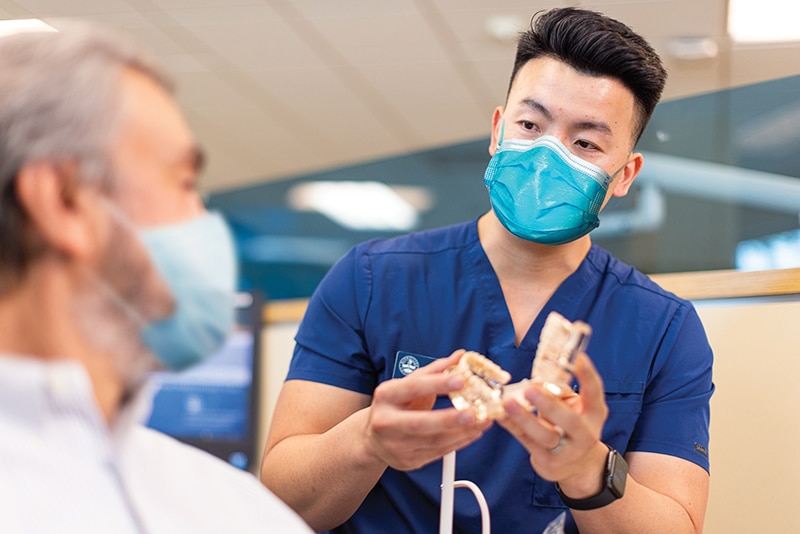By Dr. Marina Ambridge, DDS, FAGD
“So, what if my gums bleed sometimes? At least I have all my teeth.”
If that’s your excuse to not go to the dentist, you may want to rethink that.
Oral hygiene is commonly not prioritized as much as it should be, but fortunately times are changing. There is increased awareness about gum (periodontal) disease and the importance of catching it early on.
With increased awareness, there has been increased research, bringing some other more critical issues to light: periodontal disease can harm more than just your gums. It can have some serious effects on your overall health, opening the door to fatal diseases.
The question here is: How?
Periodontal disease is essentially the result of infections and inflammation of the gums and bones that surround and support the teeth. The culprits here are yeast, viruses, and a host of other bacteria.
Let’s focus on the word inflammation for now. Medicine is now starting to redefine vascular disease as an inflammatory disease, so anything that causes inflammation can cause vascular diseases.
With gum disease, the bacteria (or bugs within your teeth known as the traveling oral microbiome) are continuously supplied to the rest of your body from your teeth and gum area. Your immune system has to fight the bacteria day and night. This greatly stresses your health and creates chronic inflammation in your system, which forms the basis for Alzheimer’s, vascular diseases, diabetes, and other inflammatory diseases like periodontal disease.
This is what we call inflammation syndrome. There is sufficient evidence that indicates gum disease can reduce elasticity of your blood vessels and cause atherosclerosis, a condition that develops when plaque builds up inside your arteries. In fact, men under 50 with periodontal disease have a 72% increased risk for heart disease.
But how do gum bacteria affect your heart? Pathogens that have now moved into your system can create gaps within the blood vessels. If you already have a buildup within your arteries, bam, something disastrous might cook up. This is how clots and heart issues take birth.
The truth is that periodontal disease is linked to 57 different bodily diseases. But instead of jumping to conclusions, what’s important is for you to understand that what goes on in your mouth can have a direct effect on the rest of your body. The harmful bacteria on your teeth can affect your liver, kidney, heart, and other major organ systems.
Periodontal disease does not go away by itself. In fact, it only becomes worse with time. Besides the level of personal and professional dental care, progression of periodontal disease depends on your genetics or acquired environmental factors including diet, smoking, sleep quality and others.
So, what should you do?
If you are experiencing any symptoms such as bleeding or swollen gums, bring this to your dentist’s knowledge along with any other bodily issues you might be facing. Your role is to understand the seriousness of the situation, consult your dentist and leave the rest to the experts, who can personalize the treatments based on clinical data, determine maintenance protocols, and help you keep your overall health in top shape.
Dr. Marina Ambridge, DDS, FAGD, is a premier, award winning dentist in Peoria. Learn more by visiting, awarddentistpeoria.com or calling 623-323-4238.





